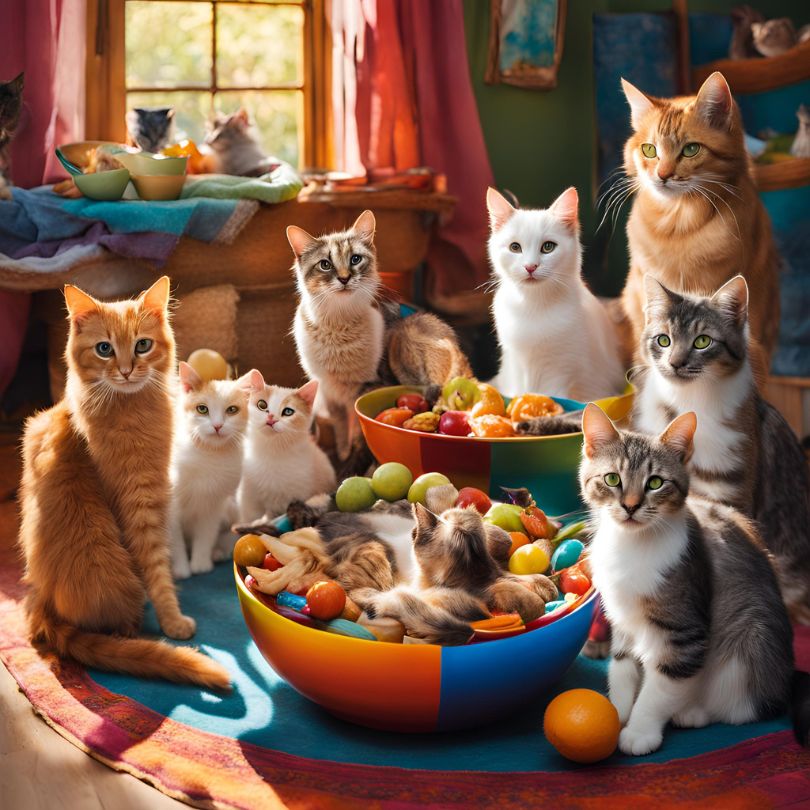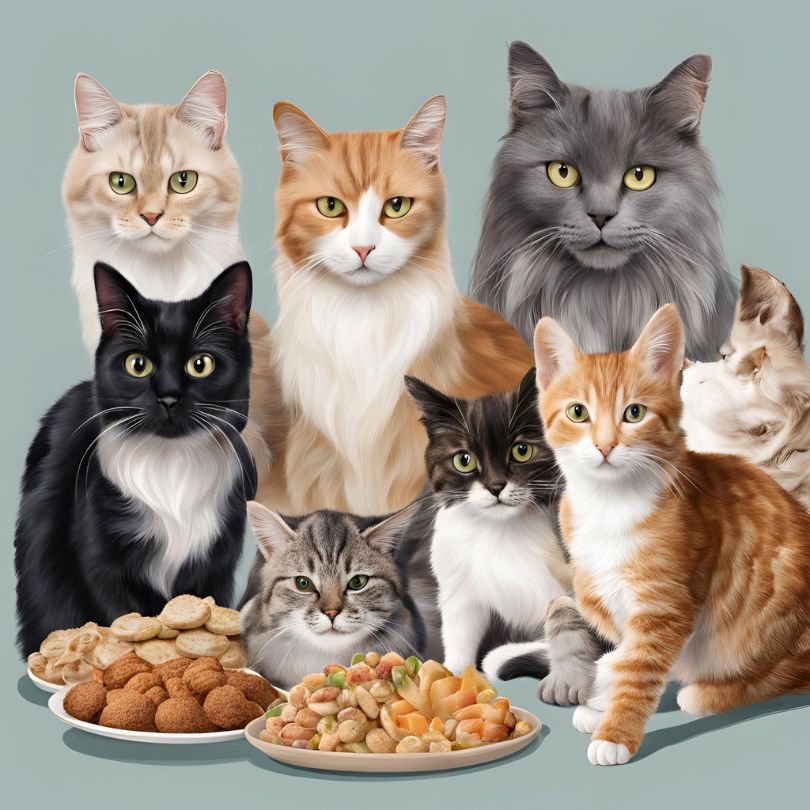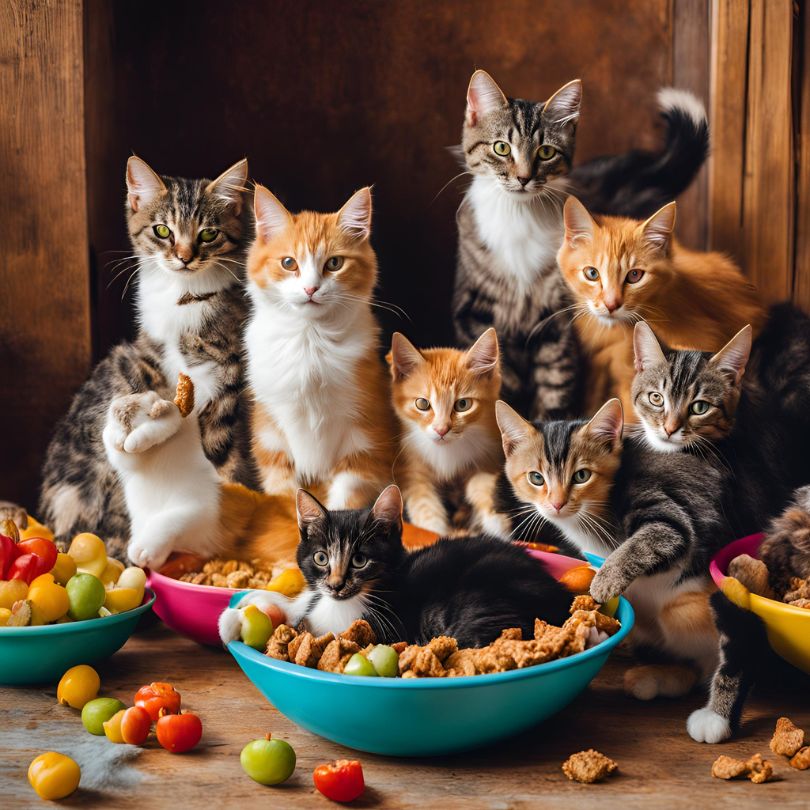Cats are cherished companions, and selecting the right food for them is essential to support their health and happiness at every stage of life. From energetic kittens to mature seniors, each phase of a cat’s life requires specific nutrients to help them thrive. This guide provides insights on choosing the best cat food according to age, ensuring your feline friend receives optimal nutrition.
Why Age Matters in Cat Nutrition
Cats have unique dietary needs that change as they grow. Nutritional requirements vary significantly from a kitten’s first days to a senior cat’s later years. Feeding a cat inappropriate food for its age can lead to health issues and nutritional deficiencies. Age-appropriate food can help your cat maintain healthy weight, energy levels, and organ function over time.
1. Food for Kittens (0-12 Months)
Kittens are full of energy, exploring and playing throughout the day, which demands a high-calorie intake and nutrients for growth.
Key Nutrients Needed:
– Protein: Essential for muscle and bone growth.
– Fats: Provide energy and help with brain development.
– DHA and EPA: Fatty acids crucial for brain and vision development.
– Calcium and Phosphorus: Important for healthy bone formation.
What to Look For:
Choose foods specifically labeled for kittens or “all life stages.” These formulas offer balanced nutrition, rich in protein and fat to fuel their rapid growth.
Feeding Tips:
– Kittens should eat small, frequent meals, around 3-4 times a day.
– Transition to dry kibble gradually if feeding wet food, as this encourages dental health and supports nutrient variety.

2. Food for Adult Cats (1-7 Years)
Once cats reach one year old, they enter adulthood. Adult cats require balanced maintenance food that provides energy without excessive calories.
Key Nutrients Needed:
– Protein and Amino Acids: Support muscle maintenance.
– Fats: Still important for energy but in smaller amounts.
– Fiber: Helps prevent hairballs and maintain digestive health.
What to Look For:
Choose food labeled for adult cats or “maintenance.” Ensure it has a balance of protein, moderate fat, and fiber content to meet their energy needs without promoting weight gain.
Feeding Tips:
– Stick to a consistent feeding schedule, usually twice a day.
– Portion control is crucial to prevent obesity. Use feeding guides on packaging but adjust according to your cat’s activity level and weight.
3. Food for Senior Cats (7+ Years)
As cats age, they become less active and may experience health issues, such as joint problems or kidney concerns. Senior cats benefit from food formulated to support aging bodies.
Key Nutrients Needed:
– Protein: High-quality, easily digestible protein for muscle maintenance.
– Antioxidants and Omega-3 Fatty Acids: Aid in reducing inflammation and support brain function.
– Fiber: Improves digestive health and helps with weight control.
– Reduced Sodium and Phosphorus: Beneficial for kidney health in senior cats.
What to Look For:
Look for food labeled for senior cats, or those with specific formulations for joint health, kidney support, or digestive health. Senior cat foods often have adjusted nutrient levels to meet their needs.
Feeding Tips:
– Senior cats may need smaller, more frequent meals to avoid digestive issues.
– Monitor your senior cat’s weight and adjust food portions as needed to prevent obesity or excessive weight loss.

Wet vs. Dry Food: Which is Better?
Both wet and dry food have their benefits for cats of all ages.
– Wet Food: Hydrates cats, especially beneficial for those prone to urinary tract issues. It’s also often preferred by picky eaters.
– Dry Food: Helps maintain dental health and is convenient to store. It’s also beneficial for cats who prefer to graze throughout the day.
A mix of both can provide the best of both worlds, but always ensure your cat has access to fresh water.
Tips for Transitioning Cat Food by Age
Changing your cat’s food should be done gradually to avoid digestive upset. Start by mixing a small amount of the new food with their current food, gradually increasing the proportion over a week until they’re fully transitioned.
Common Mistakes to Avoid
– Feeding a single diet for all ages: Avoid giving adult food to kittens or senior cats, as it can lead to nutritional imbalances.
– Not adjusting portions: Overfeeding is common, especially in less active cats.
– Ignoring hydration needs: Always ensure that fresh water is available, particularly if feeding dry food.
Choosing the right food for your cat’s age can significantly impact their overall health and well-being. By selecting age-appropriate food and keeping a close watch on their health and weight, you’re giving your cat the best chance for a happy, healthy life. Always consult your vet for personalized advice, especially when transitioning diets or managing specific health conditions.

